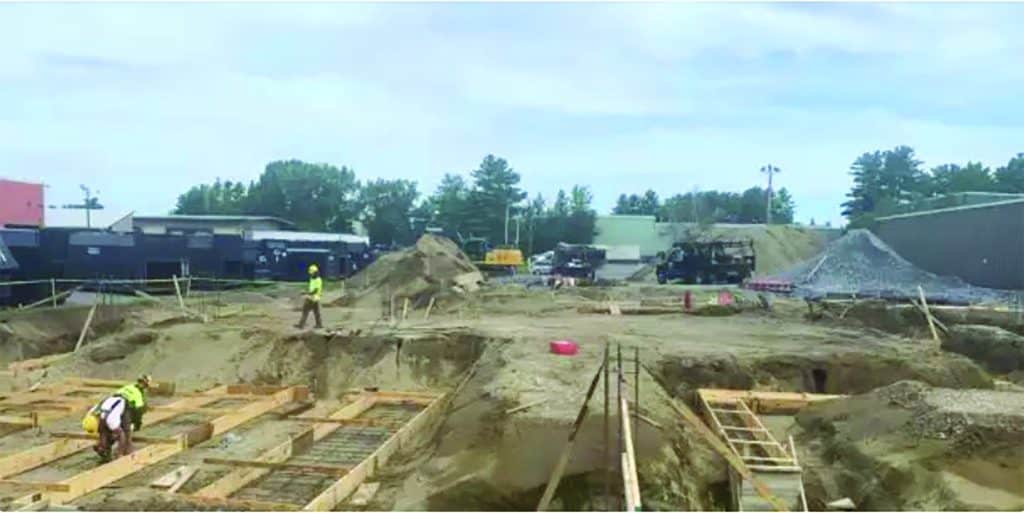
First-of-its-kind facility in Vermont turns waste into renewable resources
Casella Waste Systems, Inc. announced that it has broken ground on a state-of-the-art facility designed to separate spoiled and contaminated food products from their packaging. The facility, known in the waste and recycling industry as a de-packaging operation, uses a mechanical process to separate food waste from packaging allowing for items that would have traditionally become waste, to be recycled.
The facility is designed to handle up to 100 million pounds of organic material annually and has already contracted with several in-state commercial food waste producers to accept their spoilage.
“It’s very exciting for the company to bring this technology to fruition in our home state,” said John W. Casella, Chairman and CEO of Casella Waste Systems, Inc. “This facility will allow us to separate valuable organic and recyclable feedstock from waste material, put them to a higher and better use, and preserve natural resources. I couldn’t be prouder of our team in Williston for seeing this process through and working hard to bring this service to our customers and community.”
Once collected and processed at Casella’s Williston facility, the organic material will be shipped to a powerful, high-efficiency anaerobic digester and converted to biogas. The packaging material will then be recycled or disposed of depending on its material composition.
Depending on the type of food waste received, the method of collection, and the packaging material, the food scraps may also be used as animal feed for local farms.
“This facility allows us to make better decisions about how we close the loop with certain materials, in addition to eliminating material from the waste stream,” Casella said. “If we receive a load of spoiled bread product, we can efficiently separate that from the plastic bags, recycle the bags, and ship the bread to a farm for livestock feed. If it’s a load of spoiled liquid in aluminum cans, that liquid can be extracted, sent to the digester, and the aluminum recycled.”
The project broke ground earlier this summer and is expected to be operational before winter.




